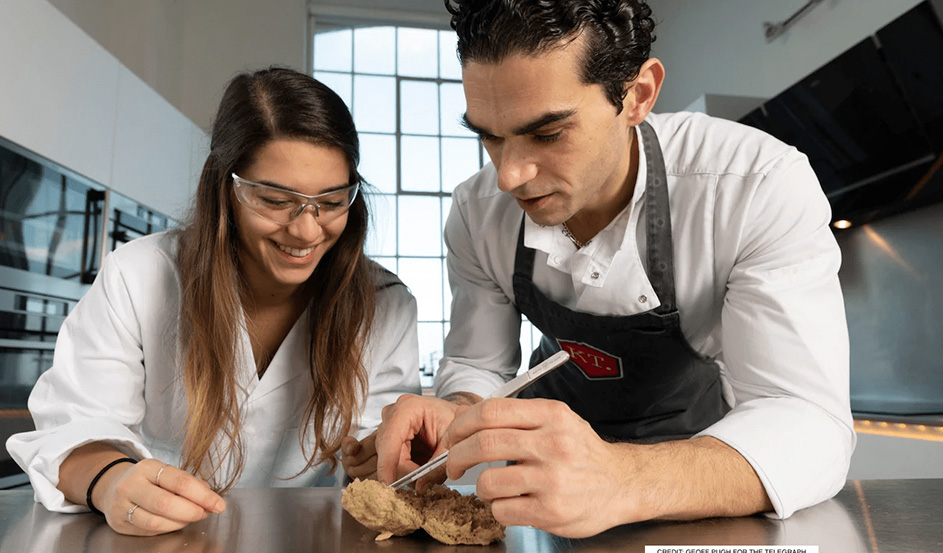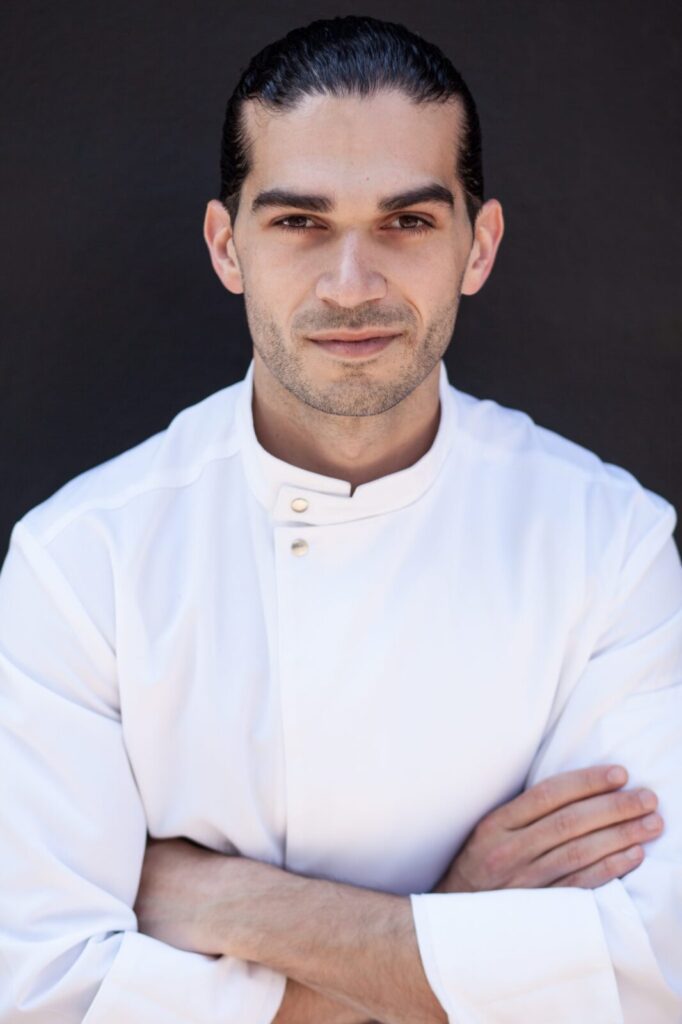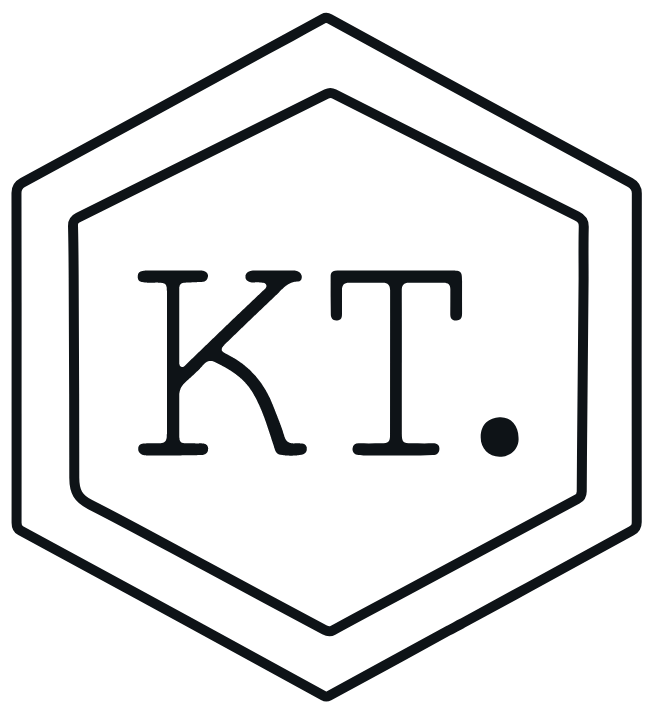
INNOVATION IN EDUCATION AT IMPERIAL COLLEGE
As of Autumn 2019 Imperial College’s Chemistry students will take part in an innovative new module designed with Kitchen Theory that mixes chemistry lab skills with modernist culinary techniques.
Over a three year period, Kitchen Theory is working with Imperial’s Department of Chemistry to develop and deliver a unique interdisciplinary module -‘Introduction to Culinary Practice’ -which introduces first year chemistry students to the parallel world of culinary science.
The project initially came about based on a discussion between KT founder chef Jozef Youssef and Professors Roger Kneebone and Alan Spivey of Imperial College. They found many parallels existed between work carried out in the chemistry lab and that of a professional cook, but most interestingly their discussion brought to light the general lack of practical training offered to chemistry students in the lab, especially when compared to culinary school students. Imperial College, being one of the most forward thinking institutions in the world, is always looking at innovative ways to improve their student’s experience and support them in their academic journey, and so they felt something could be done to improve the practical training and support offered to their chemistry students.
“Whether you want to be a chemist or a chef skills such as meticulous planning and detailed observation and recording are vital. The plan is to encourage safe experimental practice, practical reproducibility and appreciation of the often overlooked parallels between the practice of chemistry and myriad other activities.” Alan Spivey, Professor of Synthetic Chemistry and Assistant Provost at Imperial College
The result was the Chemical Kitchen; a cross disciplinary laboratory located within Imperial College that will introduce students to culinary practices and techniques aimed at improving their practical skills, planning, creativity, precision, dexterity, observation and application of knowledge.
“The Chemical Kitchen will encourage social cohesion amongst students, developing a sense of collegiality rather than competition within a safe environment that encourages personal growth and supportive behaviour.” Roger Kneebone, Professor of of Surgical Education at Imperial College
As always Kitchen Theory is thrilled to be involved in an innovative project that brings further meaning and importance to the role of gastronomy in education and beyond. The Chemical Kitchen will grow to serve as a hub of innovation within Imperial, using gastronomy as a medium for encouraging multi disciplinary collaboration.
The Experts Behind the Chemical Kitchen

Roger Kneebone directs the Imperial College Centre for Engagement and Simulation Science (ICCESS), based within the Division Surgery on the Chelsea & Westminster campus. The Centre’s aim is to advance human health through simulation, collaborating closely with clinicans, scientsts, patients, publics and experts outside medicine. Roger and his co-director Dr Fernando Bello lead a vibrant multidisciplinary research team.
[expand title= “expand to read more”] Roger also directs the Royal College of Music (RCM) – Imperial College Centre for Performance Science. This ambitious collaboration, launched in 2016, is aimed at tackling major challenges of performance across a wide array of domains from the arts, education and business to medicine, science and sport. Led jointly by Roger and Professor Aaron Williamon (RCM), the Centre draws on dynamic collaborations already in place across the two institutions, spanning the arts, medicine, engineering, natural sciences, and business. Roger trained first as a general and trauma surgeon, working both in the UK and in Southern Africa. After finishing his specialist training, he decided to become a general practitioner and joined a large group practice in Trowbridge, Wiltshire. In the 1990s he pioneered an innovative national training programme for minor surgery within primary care, based around intensive workshops using simulated tissue models and a computer-based learning program. In 2003, Roger left his practice to join Imperial. Roger is committed to education in it widest sense. In July 2011 he became the first Imperial academic to receive a Higher Education Academy National Teaching Fellowship Award. Roger established and (with Dr Kirsten Dalrymple) leads the UK’s only Masters in Education (MEd) in Surgical Education, which started in October 2005. This challenging programme builds on educational theory and practice to explore relationships between the biomedical sciences, the craft of surgery and the humanities and social sciences. Recently reframed to reflect innovations in educational thinking, the M Ed has a modular structure which takes advantage of new developments in surgery, education and interdisciplinary research. Much of Roger’s current research focuses on simulation. He leads an unorthodox and creative research group, bringing together clinicians, educationalists, computer scientists, psychologists, social scientists, design engineers and experts from the visual and performing arts. Key research concepts include Hybrid Simulation (the combination of professional actors with inanimate models to create realistic clinical encounters), Distributed Simulation (low-cost, portable yet highly convincing environments such as the ‘inflatable operating theatre’) and Sequential Simulation (concatenated sequences that model clinical pathways from multiple points of view). Current and recent grants include EPSRC, ESRC, AHRC, Wellcome Trust, HENWL and Imperial Charity. Roger publishes widely and speaks frequently at national and international conferences. He has a wide range of professional interests and is especially interested in collaborative research at the intersections between traditional disciplinary boundaries (http://tinyurl.com/TEDMed-Live-2013). Current work is exploring synergies between clinical care, biomedical science, art, humanities and performance (http://www.theguardian.com/society/2014/nov/05/doctor-change-view-nhs-roger-kneebone). Roger is fascinated by the embodied ways of knowing developed by experts in different fields and how these can inform one another (http://www.nature.com/nature/journal/v542/n7641/full/542294a.html). Parallels, his recent series of live conversations at the Wellcome Collection, explored these ideas through participative public events. Roger also explores how simulation can be used to recreate tacit and embodied surgical practices from the recent past (http://tinyurl.com/BMJ-surgical-reenactment). He has worked on innovative projects with the Science Museum, Victoria & Albert Museum, Wellcome Trust and Royal Institution as well as a number of major science festivals. Roger’s current focus is the theory and practice of engagement. He is committed to outreach and public engagement, leading numerous high profile Festivals and venues to bring simulation into the public domain and highlight both the patients’ and clinicians’ perspectives. The award of a prestigious Wellcome Trust Engagement Fellowship has provided a unique opportunity for him to develop engagement and simulation science within and beyond Imperial. A recent ESRC-funded Symposium explores the ’embodied knowing’ that underpins science, medicine and the arts (https://tinyurl.com/artofperformingscience). Roger and his ICCESS colleagues were awarded the 2016 Imperial President’s Medal for Excellence in Societal Engagement. In recognition of his innovative work, Roger has been awarded Honorary Membership of the Royal College of Music (HonRCM), become the first Honorary Fellow of the City & Guilds of London Art School (http://www.cityandguildsartschool.ac.uk/roger-kneebone-made-first-art-school-honorary-fellow/) and been elected a full member of the Art Workers Guild. In January 2019 Roger was elected Professor of Anatomy at the Royal Academy of Arts, the fourteenth to hold this post since William Hunter at the establishment of the Royal Academy in 1768. Roger’s regular podcast series Countercurrent is on iTunes (http://apple.co/2n5ROy1) To follow Roger on Twitter or Facebook or to find out more about his forthcoming events, please go to ExploreSurgery and @ProfKneebone.[/expand]

The founder and creative force behind Kitchen Theory. Jozef’s years of experience in London’s most highly acclaimed Michelin star restaurants coupled with his passion for gastronomy, art and science led to him establishing Kitchen Theory. Youssef is also the author of Molecular Gastronomy at Home, and is an associate editor at the International Journal of Gastronomy and Food Science.
[expand title= “expand to read more”] Youssef designs Kitchen Theory’s Gastrophysics Chef’s Table, corporate experiences and product ‘sensplorations’ , by combining his exceptional culinary skills with ongoing research into the scientific field of gastrophysics, carried out in collaboration with Professor Charles Spence, head of Oxford University’s Crossmodal Department. Youssef’s contribution towards scientific research in the field of gastronomy has led him to travel the world sharing the findings and unique creative method; in which science is used to enhance experience design, resulting in gastronomic experiences which led to Kitchen Theory becoming among the most successful pop-up restaurants in London. Most recently, Youssef has created the Gastrophysics Chef’s Table, at which he hosts 10 guests, who are set to experience the most multisensory chef’s table in London.[/expand]

Alan Spivey is Professor of Synthetic Chemistry in the synthesis section of the Department of Chemistry Imperial College London. He began his research career studying for a DPhil with Professor Sir Jack Baldwin (Oxford University) developing new syntheses of enantiomerically pure beta-substituted alpha-amino acids.
[expand title= “expand to read more”] Following post doctoral experience in the labs of the late Professor Wolfgang Oppolzer (Geneva University) and Professor Sir Alan Battersby (Cambridge University) investigating alkaloid total synthesis and tetrapyrrole biosynthesis respectively he was appointed to his first independent position as a lecturer at Sheffield University in 1996. He moved with his research group to Imperial College in January 2003. The focus of his group’s research is the development of useful new synthetic concepts and methods and the demonstration of their utility by application to the synthesis of biologically important molecules.[/expand]

